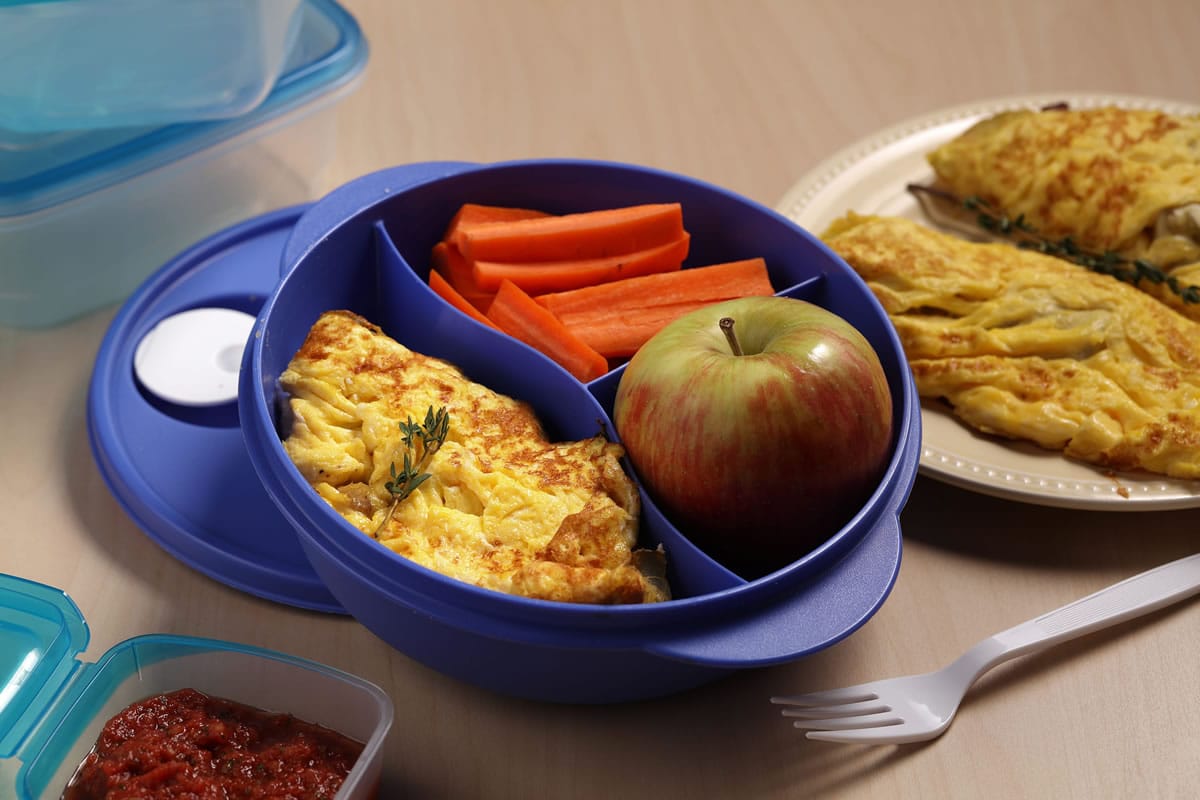This much I know: Old dogs can learn new tricks. When a friend taught my husband to cook eggs ahead of time for weekday lunches, I realized I needed to learn too. Especially since eggs prove versatile enough for every meal of the day.
Omelets made Sunday afternoons mean terrific weekday breakfasts in no time or elegant lunches on the go. I especially enjoy feasting on a filled omelet at my desk while everyone else scrambles to figure out what to eat for lunch.
We treat eggs as a refrigerator basic and nearly always have them on hand. The trouble with this thinking? We usually cook old eggs. In fact, most supermarket eggs are already more than a week old before they arrive at the store. Sure, they’ll keep a week or more at home, but the flavor diminishes.
Whenever possible, I try to buy eggs from a local farmer. That means the eggs are just a few days old. Cooked side by side, fresh eggs versus supermarket eggs taste richer and have brighter yolks and whiter whites.



